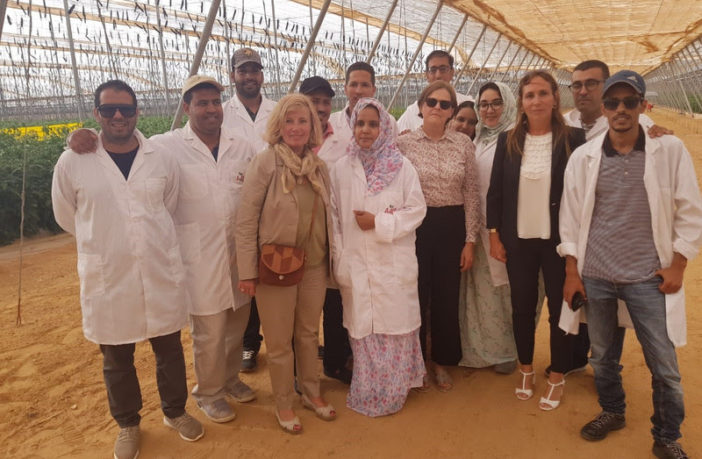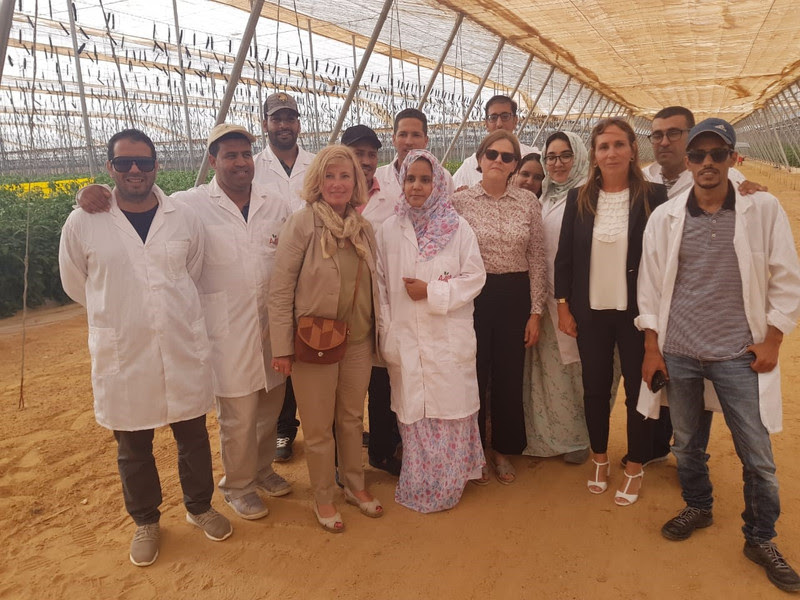EU Observer
Yanja Khattat
Dakhla-Oued Eddahab
Opinion
I am very fortunate to represent one of the most beautiful regions of Morocco, Dakhla-Oued Eddahab.
Dakhla is a top-class destination for windsurfers throughout the year.
Our region is flourishing, but not only thanks to tourism. International trade agreements and investments have contributed massively to our wellbeing.
A few weeks ago, we welcomed to Dakhla a fact-finding mission from the European Parliament including several MEPs. We showed them the facts: dozens of projects from the agriculture sector which provide jobs and investments to the benefit of the local population.
The MEPs had the opportunity to visit different projects held by young Sahrawi, among them a lot of women: from vegetables production supporting local young entrepreneurs to projects for the development of the local camel industry (milk collection centre).
This was only a small glimpse of the reality and the benefits that international trade and investment from Morocco has brought to us.
Until Morocco became involved, the population of the Saharan Provinces was largely nomadic. We had little access to infrastructure, basic services, and economic and social development projects.
Today, most inhabitants have settled, and benefit from a range of life-enhancing services, including transport, communication, health, education, desalination of water, culture, tourism and sport.
As a consequence, there has been a dramatic drop in poverty, down from 19 percent to 4 percent in the past decade.
Rabat’s investment
Rabat has mobilised exceptional resources and invested substantial budgets for the reconstruction of the Saharan Provinces.
It remains both the largest investor and largest employer in the provinces, pumping almost €7bn into development covering projects in energy, infrastructure, hydraulics, fishing, agriculture, tourism, health, culture and education.
Moving beyond the economy, people in the Saharan Provinces benefit from a vibrant local civil society, with a network of associations active in such fields as promotion of women and children, education, human rights, and economic and social development.
The cities of Laayoune and Dakhla alone total more than 2,300 associations.
That’s why I was deeply saddened to read claims in the opinion piece Reality of my three days in occupied Western Sahara which are not factual and certainly contradict my reality and the reality of the Sahrawi who live on the ground on a daily basis.
I was surprised to read the claim that the Sahrawi population became a “minority in its own region” especially when this is not backed by figures.
I am a Sahrawi, as is the case with all the directly-elected representatives of our region.
We have elected bodies at the national and local levels. This includes about 1,000 elected officials for the Saharan Provinces, representing 33 communes, two regions and four professional chambers: parliamentarians, councillors, prefectural and provincial councils, all from the Sahara.
All national political parties are represented.
When it comes to Polisario, they are not, by any means, the only representative of Western Sahara and certainly not directly elected by the local population.
I was member of Polisario in the past but, as Sahrawi, I decided to make a change and become part of the solution –
Polisario benefits from the Sahara conflict.
I was directly elected as president of the region in 2015, through a democratic and transparent process: free elections.
Development in the Sahara is progressing well and the new agricultural and fisheries agreements with the EU will give us further opportunities.
If my region together with other regions in the Sahara were excluded, it would strongly undermine our development, with a
risk of opening the door to radicalisation and undermining the stability of the whole Mediterranean region, especially with respect to security and migration.
I hope that the EU will not oppose the path to further development, prosperity and stability for our region and that the agreements will be ratified as soon as possible.
Yanja Khattat is president of the Dakhla-Oued Eddahab region








